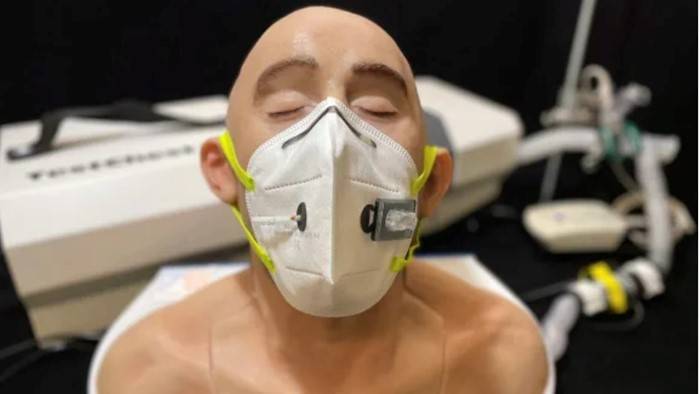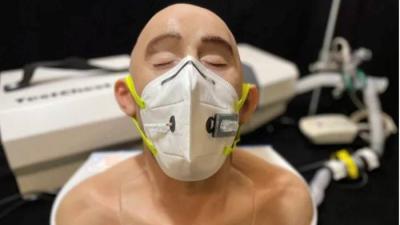Scientists have found a way to incorporate synthetic biology interactions into fabrics, creating wearable biosensors that can be customized to detect pathogens and toxins, alerting the wearer. Researchers from the Wyss Institute for Biologically Inspired Engineering at Harvard University and the Massachusetts Institute of Technology have woven fabric with sensors that change color upon detecting the presence of the SARS-CoV-2 virus in a patient’s breath. The team claims that the face mask provides results within 90 minutes with accuracy levels similar to standard DNA-based diagnostic tests such as polymerase chain reaction (PCR).
Dr. Peter Nguyen, a research scientist at the Wyss Institute at Harvard, stated, "We essentially condensed an entire diagnostic laboratory into a small biosynthetic-based sensor that works with any face mask, combining the high accuracy of PCR tests with the speed and low cost of antigen tests." He noted that the visible color change can also indicate when and where the virus was contracted. The mask is made from enzymes that react with chemicals present in the SARS-CoV-2 virus. It is activated by a button and remains unaltered until the virus enters the mask and interacts with the enzymes, leading to a color change in part of it.
Dr. Nguyen and his team explained that the mask will change color from the inside to maintain privacy. He added, "In addition to face masks, our biosensors can be integrated into other clothing for detection on the go." Only laboratory prototypes have been manufactured so far, and the team hopes to find a manufacturer to produce these face coverings on a large scale. The team highlighted that their technology could be integrated into lab coats for scientists handling hazardous materials or pathogens.




